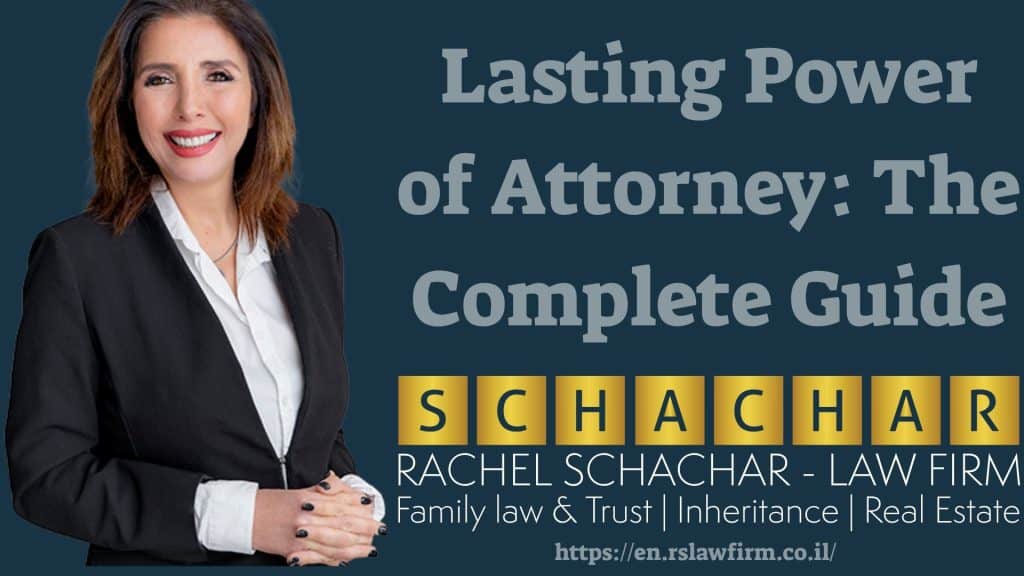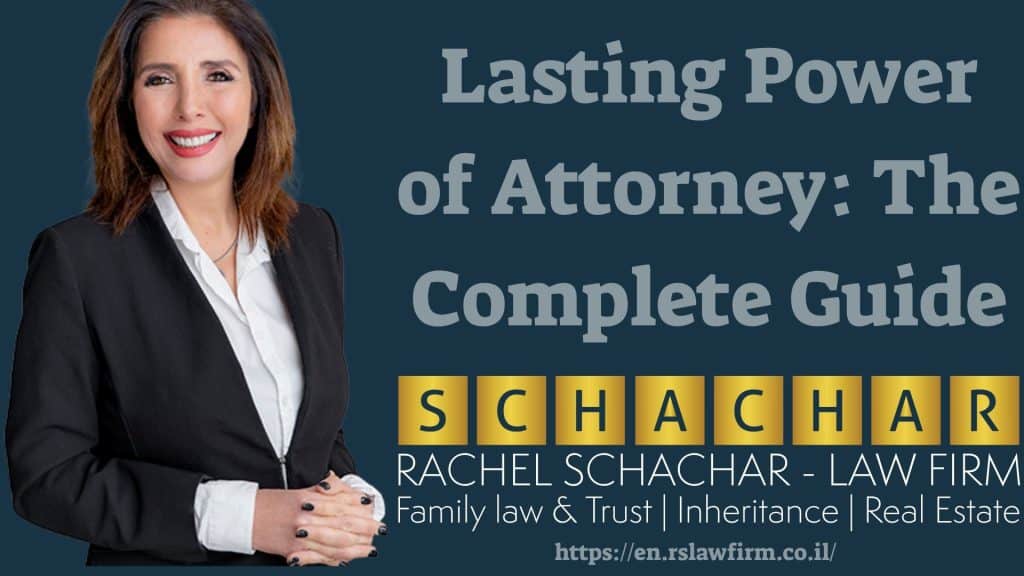Table of Contents
| Introduction | Understanding the Significance of Enduring Power of Attorney (EPA)The Role of EPA in Legal Preparedness |
| What Is an Enduring Power of Attorney (EPA)? | Defining EPA and Its PurposeThe Endurance of an EPAAvoiding the Need for Guardian Appointment |
| Customizing Your EPA | Specific Instructions vs. Independent DiscretionEnsuring Your EPA Aligns with Your Unique Needs |
| Eligibility and Decision Makers | Who Can Create an EPAMeeting the Age and Comprehension CriteriaAppointing Attorneys-in-Fact and Alternates |
| Scope of an EPA | Personal Matters vs. Property MattersClarifying the Areas of Authority |
| Guidelines and Discretion | Empowering Attorneys-in-FactBalancing Specific Instructions and Discretion |
| Examples of EPA Use | Personal Medical AffairsFuture Residence DecisionsProperty Management and Investments |
| Legal Requirements and Considerations | The Role of an Attorney in EPA DraftingDepositing the EPA with the General GuardianCreating EPAs for Medical Matters |
| Activation and Duration of an EPA | Conditions for EPA Entry into ForceThe Role of Appointing Persons and Their FamilyClarifying the Legal Competence of the Appointing Person |
| Notice of EPA Entry into Force | Informing Relevant PartiesThe Role of “Informed Persons” and Reporting |
| Exercising an EPA That Has Entered into Force | Actions and Powers Defined in the EPAPresenting the EPA Document to Relevant Bodies |
| Expiration of an EPA | Various Scenarios Leading to ExpiryThe Process of Notifying the General Guardian |
| Revoking an EPA | The Right to Revoke an EPACourt Approval Requirements for Revocation |
| Alternatives to an EPA | Advance Directives for Future GuardianshipThe Role of Decision Supporters |
| Conclusion | The Importance of Planning for the FutureHow an EPA Can Secure Your Peace of Mind |

Lasting power of attorney for situations of inability to make decisions in the future
An adult can define who will make decisions for him in situations where he cannot do it himself, by drawing up a lasting power of attorney
The power of attorney can include specific instructions, and can also allow the power of attorney independent discretion
It can be determined that the continuing power of attorney will be valid even in a situation where the person loses his legal capacity, so that the power of attorney will act instead of appointing a guardian
An explanatory video on behalf of the Ministry of Justice on the subject of continuing power of attorney
A durable power of attorney is designed to allow a person to determine in advance how and by whom his affairs will be handled, when he can no longer make decisions on his own.
- The power of attorney can be prepared by any person over the age of 18, who understands the meaning of the continuing power of attorney and its results.
- The power of attorney determines who will be the power of attorney and how he must act on various issues. For detailed information on the powers of the power of attorney and the conditions that apply to it, see Power of Attorney for Continuing Power of Attorney.
- Lasting power of attorney can be in personal matters (including medical) and property matters, in all or in part. The entry into force of the power of attorney is relevant only to the areas specifically stated in it:
- Lasting power of attorney in personal matters refers to the person’s personal well-being, his daily needs, his place of residence, his health, his physical, mental or social affairs.
- If you wish, you can draw up a lasting power of attorney that refers to health matters only. For more information see power of attorney for medical treatment.
- A lasting power of attorney in property matters refers to handling all of a person’s assets, finances and liabilities.
- The power of attorney can set clear guidelines on certain issues, or leave the discretion to the power of attorney to act as he sees fit.
| Section | Legal Requirements |
| EPA Drafting Process | How and where to create an EPA |
| EPA Deposit | Requirements for depositing an EPA with the general guardian |
| EPA for Medical Matters | Creating EPAs specifically for medical issues |
| Activation and Duration of an EPA | Conditions for EPA entry into force and related factors |

example
• The author of the power of attorney can determine within his personal medical affairs the type/identity of his preferred therapist.
• The author of the power of attorney can determine as part of his personal affairs that his place of residence in the future will be his home, and that the transition to an out-of-home arrangement will be made only under certain circumstances.
- The attorney-in-fact can determine as part of handling his property affairs that the attorney-in-fact will sell or rent his house under certain circumstances or instruct him to invest his money in a certain way.
- Only a person who has agreed in advance to act as such can be appointed as a proxy.
- The same power of attorney can be appointed for all the desired matters, but it is also possible to appoint several power of attorneys.
- It is possible to decide on the appointment of an alternate proxy in case the first proxy is unwilling or unable to act.
- It can be determined whether the representatives of the power will act jointly or separately, what is the extent of the powers and responsibilities of each of them, as well as who will decide in the event of a dispute between them.
- The power of attorney must act according to the instructions of the person who made the power of attorney.
- In the event that the instruction given is impossible to carry out, is illegal or that carrying it out may seriously harm the person, the power of attorney should contact the court to receive instructions.
- The appointing person may determine that the power of attorney must report his actions to certain people (“informed persons”), or determine that the power of attorney will be under the supervision of the general guardian.
| Section | Description |
| Definition of EPA | What an EPA is and its purpose |
| Customization Options | Specific instructions vs. independent discretion |
| Eligibility Requirements | Who can create an EPA and age/comprehension criteria |
| Scope of an EPA | Personal vs. property matters |
| Guidelines and Discretion | Balancing specific instructions and discretion |
| Examples of EPA Use | Scenarios involving personal, medical, and property matters |

Who is eligible?
- Any person who wishes to determine in advance who will make decisions on his behalf in the future or which decisions will be made on his behalf in the future when he cannot make them himself.
- The person must meet the following two conditions:
- He is over 18 years old.
- He understands the meaning of the continuing power of attorney, its goals and results (if it is a person with a disability, the meaning is that he is able to understand this given the necessary adjustments to his situation).
Matters that should or can be included in the Enduring Power of Attorney
• In the power of attorney, the person will specify in which matter the power of attorney is authorized to act on his behalf (property matters, personal matters excluding medical matters, and medical matters).
• In addition, the person can include preliminary instructions for when the power of attorney will come into effect and regarding its expiration.
• A person may determine in the power of attorney instructions regarding the expiration of the power of attorney, including its expiration date, even if it has not been activated yet.
| Section | Parties to Notify |
| Notice of Entry into Force | Informing the appointer and others |
| Reporting to “Informed Persons” | Responsibilities of informed individuals |
example
A person can order that the continuing power of attorney is for a period of 5 years after which it is no longer valid.

- The appointing person may specify in the continuing power of attorney one or more persons (referred to as an “informed person”), to whom the power of attorney must report decisions or actions on the issues listed in the power of attorney, and he may determine that the power of attorney will report his actions to the general guardian.
- A person who is a relative of the proxy cannot be chosen for such a report, unless the proxy is a relative of the appointing person.
- An “informed person” may demand from the power of attorney information about decisions he made and actions he took on the issues listed in the power of attorney.
- There are actions that must be explicitly included in the continuing power of attorney, there are actions that, even if mentioned, will require court approval in order to exercise them, and there are actions that, even if mentioned in the power of attorney, cannot be exercised. For more information, see about limitations on the powers of a proxy in a continuing power of attorney.
pay attention
For power of attorney for medical needs only, see Power of Attorney for medical treatment.
The process of exercising the right
- The power of attorney must be drawn up on special forms and signed before a lawyer who has undergone special training, and who has no personal interest in the power of attorney. For the list of attorneys authorized to sign a lasting power of attorney.
- After drafting the power of attorney, it must be deposited (as a rule, online), with the general guardian. For detailed information on the procedure for drawing up the continuing power of attorney and depositing it, click here.
- If it is a power of attorney for medical issues only, it can be drawn up before any lawyer (even those who have not undergone special training on the subject), as well as before a licensed doctor, social worker, psychologist or qualified nurse. For more information see power of attorney for medical treatment.
| Section | Key Information |
| Exercising an EPA That Has Entered Force | Actions and powers of an EPA |
| Expiration of an EPA | Scenarios leading to EPA expiry |
| Revoking an EPA | Right to revoke an EPA |
Entry into force of a lasting power of attorney
Conditions for entry into force
- The entry into force of a continuing power of attorney will be in one of the following two cases, according to what is stipulated in the power of attorney:
- At the time when the appointing person will no longer be able to understand the matter for which the power of attorney was given.
- If certain conditions are met, stipulated in the power of attorney that if they are met, the power of attorney will take effect (for example, psychiatric hospitalization, entry into nursing care, etc.).
- It is not possible to determine in the power of attorney
- Because it will enter into force by the exclusive decision of the power of attorney.
- However, it can be established that the power of attorney will come into effect by a joint decision of the power of attorney and the appointee’s family, who will be able to testify that the conditions for the power of attorney to come into effect have been met.
- If there are no explicit instructions regarding the conditions for the power of attorney to come into effect, a medical opinion will be required stating that the appointor is no longer able to understand the same matters for which the continuing power of attorney was drawn up.
- Regarding a power of attorney for property matters, it can be established that the power of attorney will come into effect even if the person is still able to understand the matter.
- Important: the entry into force of a continuing power of attorney, in itself, does not in itself harm the legal competence of the appointing person.

| Section | Description |
| EPA Inclusions | Specifying the areas of authority |
| Instructions for EPA Entry and Expiry | Preliminary instructions |
| Role of “Informed Persons” | Reporting and supervision |
Notice of entry into force
- The power of attorney must notify the following people of the fulfillment of the conditions for the power of attorney to enter into force:
- The appointer.
- If the appointee lives in the daycare center – the director of the daycare center must be notified.
- If the appointee lives with his relatives (spouse, father, mother, son, daughter, brother, sister, grandfather, grandmother, grandson) – those relatives must be notified.
- If the appointer specified in the document certain people who must be notified of the entry into force – they must also be notified.
- The informed person must also be informed, if one is determined.
- The alternate powers of attorney, if determined, must be informed.
- After that, the power of attorney will notify the general guardian of the power of attorney entering into force in a declaration form on the entry into force of a continuing power of attorney.
- The notification to the general guardian will be made in one of two ways:
- Online, through smart identification or in the personal area, through a personal password given at the time of depositing the power of attorney.
- At the reception of the public at the guardian’s offices, depending on the place of residence of the appointee, on Mondays and Wednesdays, between the hours of 08:30 and 12:30, by prior appointment only.
- Additional documents will be attached to the statement, such as a medical opinion (if necessary as stated in the power of attorney) or any other relevant document.
- The general guardian will send the power of attorney a letter of approval or rejection of the notice of entry into force, and will also send a notice to her and the person notified accordingly.
- The continuing power of attorney document will bear the seal of the general guardian and will state the date of its deposit and the date of its entry into force.
Exercising a power of attorney that has entered into force

- The power of attorney will be allowed to act in accordance with the powers established in the continuing power of attorney.
- The power of attorney must present to anyone requesting the power of attorney document bearing the approval of the general guardian and the date of entry into force.
- The document will be respected by the bodies relevant to the areas defined in the power of attorney (such as financial bodies or medical bodies).
| Section | Alternative Options |
| Advance Directives | Document for future guardianship plans |
| Decision Supporters | Role and purpose of decision supporters |
Expiration of Lasting Power of Attorney
- A continuous power of attorney will expire if one of the following situations occurred:
- A certain condition that the person stipulated in the power of attorney has been fulfilled.
- The executor or the power of attorney dies.
- There has been a change in the status of the power of attorney and he no longer meets the required conditions (for details of the conditions, see the Power of Attorney entry for continuing power of attorney).
- The power of attorney was appointed due to being a professional and his license was revoked.
- The power of attorney has informed the power of attorney (or his spouse) in writing that he no longer wishes to act as a power of attorney.
- The power of attorney was the spouse of the power of attorney and the marriage relationship had expired (unless it was explicitly stated otherwise in the power of attorney).
- The power of attorney was known to the public of the power of attorney and stopped running a joint household with him with the intention of breaking up family life permanently.
- Notification of the expiration of the power of attorney must be given to the general guardian:
- If the power of attorney has not yet entered into force – the appointing person (the person who drew up the power of attorney) must notify the general guardian of its expiration.
- If the power of attorney takes effect – the power of attorney must notify the general guardian of its expiration.
- The notification to the general guardian will be made online, through smart identification or in the personal area, through a personal password given at the time of depositing the power of attorney.
| Eligibility Criteria | Conditions for Entry into Force | Notifying Parties | Expiry Scenarios |
| – Over 18 years old | – Inability to understand matters | – Inform the appointer | – Condition fulfillment |
| – Comprehends EPA’s purpose | – Conditions stipulated in EPA | – Notify director of daycare | – Death of the executor |
| – Understanding EPA goals | – Joint decision of family | – Notify relatives | – Change in power of attorney status |
| – Necessary adjustments for individuals with disabilities | – Medical opinion (if no explicit instructions) | – Notify “informed persons” | – Professional license revocation |
| – Property EPA entry even if still competent | – Notify alternate attorneys | – Written revocation by power of attorney | |
| – Notify general guardian | – Expiry date specified in EPA | ||
| – Notify other specified individuals | – End of marriage relationship (unless stated otherwise) | ||
| – Additional documentation required | – Cessation of joint household intent | ||
| – General guardian’s approval/rejection |
Revocation of Lasting Power of Attorney
- The appointing person may revoke the power of attorney.
- If the power of attorney has already entered into force and the appointing person has signed a clause that limits his ability to cancel the ongoing power of attorney, the court’s approval must be obtained for the cancellation.
- In addition, the relatives and friends of the appointing person head to the court and request to cancel the power of attorney in any of the following cases:
- If there are special circumstances related to the power of attorney’s performance, or
- If the circumstances under which the power of attorney was drawn up justify its cancellation (such as signing the power of attorney under duress).

Alternatives to drafting a durable power of attorney
- A person who wishes to set instructions in advance in case it is necessary to appoint a guardian, can draw up a document giving advance instructions.
- A document of advance directives makes it possible to determine various instructions, such as the identity of the guardian to be appointed, as well as detailing future decisions to be made on his behalf or actions to be taken on his behalf by the guardian to be appointed. For more information, see Provision of preliminary instructions for the appointment of a guardian.
- A person who has not made a lasting power of attorney but does not need a guardian can appoint a decision supporter.
- The role of the decision supporter is not to make decisions for that person, but to present him with all the relevant information, get necessary information for him and assist him in making decisions for himself. For more information, see Decision Support.
Experience and Expertise in Durable Power of Attorney: Choose Rachel Schachar Law & Notary Firm
At Rachel Schachar Law & Notary Firm, we understand the critical importance of planning for your future when it comes to matters of durable power of attorney. With years of dedicated experience in family law and a specialization in the intricacies of durable power of attorney, our firm stands ready to assist you in crafting a comprehensive and tailored plan. We believe that everyone deserves peace of mind, knowing that their affairs will be handled according to their wishes when they are no longer able to make decisions themselves. Our team of knowledgeable attorneys is committed to guiding you through the process, whether you require assistance in personal or property matters, and whether you seek specific instructions or prefer to grant your appointed attorney independent discretion. When it comes to securing your future, trust Rachel Schachar Law & Notary Firm to provide the expert legal counsel and support you need.





